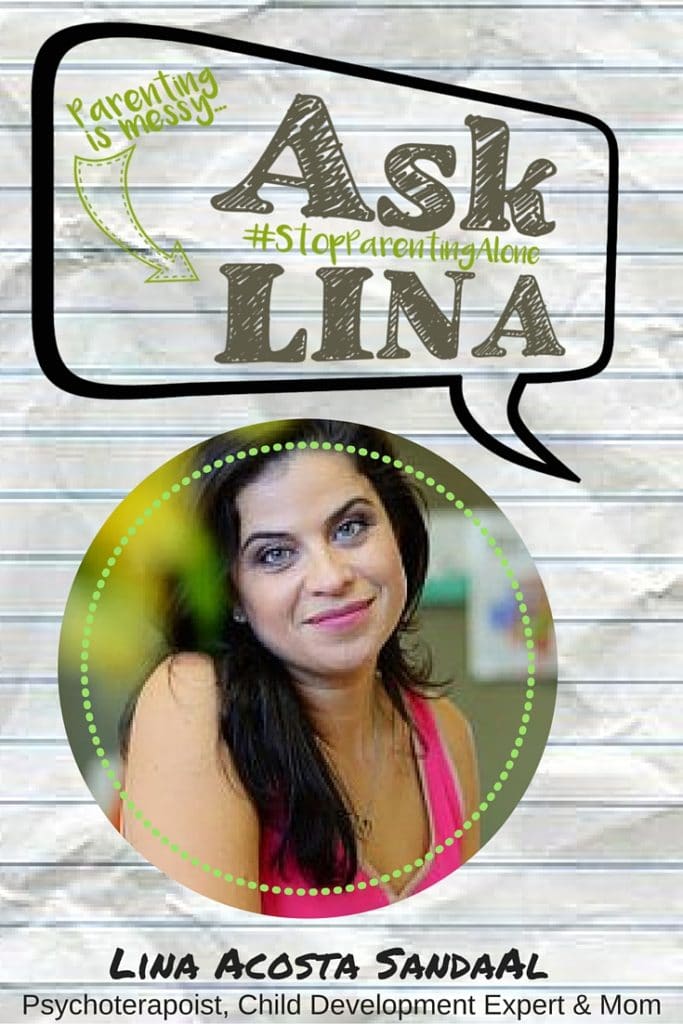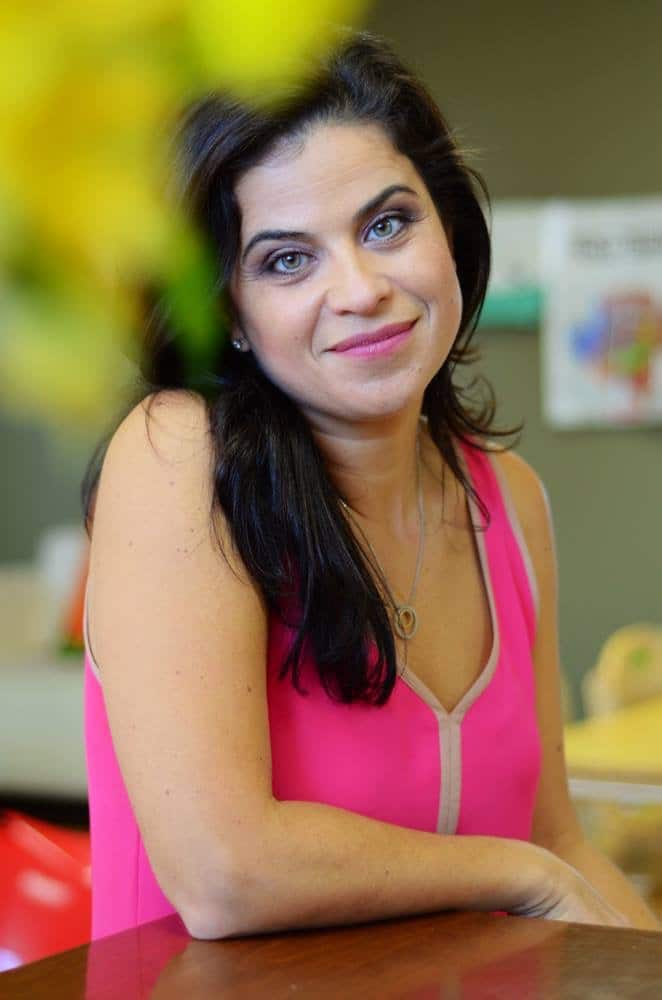“Ask Lina” is a special editorial series where we invite you to send us your parenting questions in the comments below and our teen & tween emotional expert, Lina Acosta Sandaal, gives you tips that will help you navigate these crucial “in-between years.”

The students in her class have begun to point out how intelligent she is. They react to her with jokes spiced with sarcasm saying, “What’s the magic recipe for getting all the answers right?” This is not bullying. These are just kids reacting, noticing, and moving through the markers of development. The ones speaking to her this way are defending themselves from embarrassment and fear of my daughter judging their mistakes or their perceived lack of knowledge compared to her. My daughter has begun to grapple with how to be her authentic self: intelligent, curious, an avid reader and friend. With her need to remain in relationship with those around her.
Carol Gilligan, author of In a Different Voice, studied this phenomenon. Girls ages 10+ begin to move from knowing exactly who they are to answering questions and inquiries about their personality with “I don’t know.” The leap from healthy to depressed and anxious heightens, and they become less resilient than they were between the ages of 6-9. Why is this? What did Gilligan’s research teach us? This is the time when our girls become initiated to a malady in our culture of asking women to be nice, stay small, and be pretty, which for many girls translates to giving up who they are authentically, and running the risk of harming one another or rupturing relationships. The price of this initiation of being accepted as a sweet kind girl is to silence their point of view.
So there I was looking at my tearful daughter in the mirror knowing that she was grappling with this identity crisis. I thought “here we go.” I began to help her sort through the choices. I spoke to her about how difficult it is to risk losing a friend, but that losing herself would be more difficult and a lot more detrimental to her future. I helped her see her choices: to give in, keeping the friendships but feeling resentment; or explain what it is like for her to love to learn, while affirming that she would never judge or reject them for making mistakes; or saying nothing and continuing to feel uncomfortable. Then, I let her sit with those choices and hope she makes the right one for herself.
The answer to how to handle this critical time in my daughter’s and your daughter’s development is to translate the issues, clarify the choices, and finally allow them to make the choice. This builds them up; pressuring them to choose your way is feeding the beast that is at her shoulder, the beast that tells our girls to please others in spite of themselves. This is how you can teach her resillience.
—
Have a tween/teen parenting question for Lina? Great! You can add your question in the comments below and Lina will be happy to answer in a future post.

Lina Acosta Sandaal, MA, LMFT is a psychotherapist, child development expert and founder of Stop Parenting Alone, a parenting and therapy center in Miami, FL. She is the parenting expert on Telemundo’s national morning show Un Nuevo Dia, a co-chair from the Florida Maternal Mental Health Collaborative and a consultant for MomsRising, a national organization advocating for children and family rights
